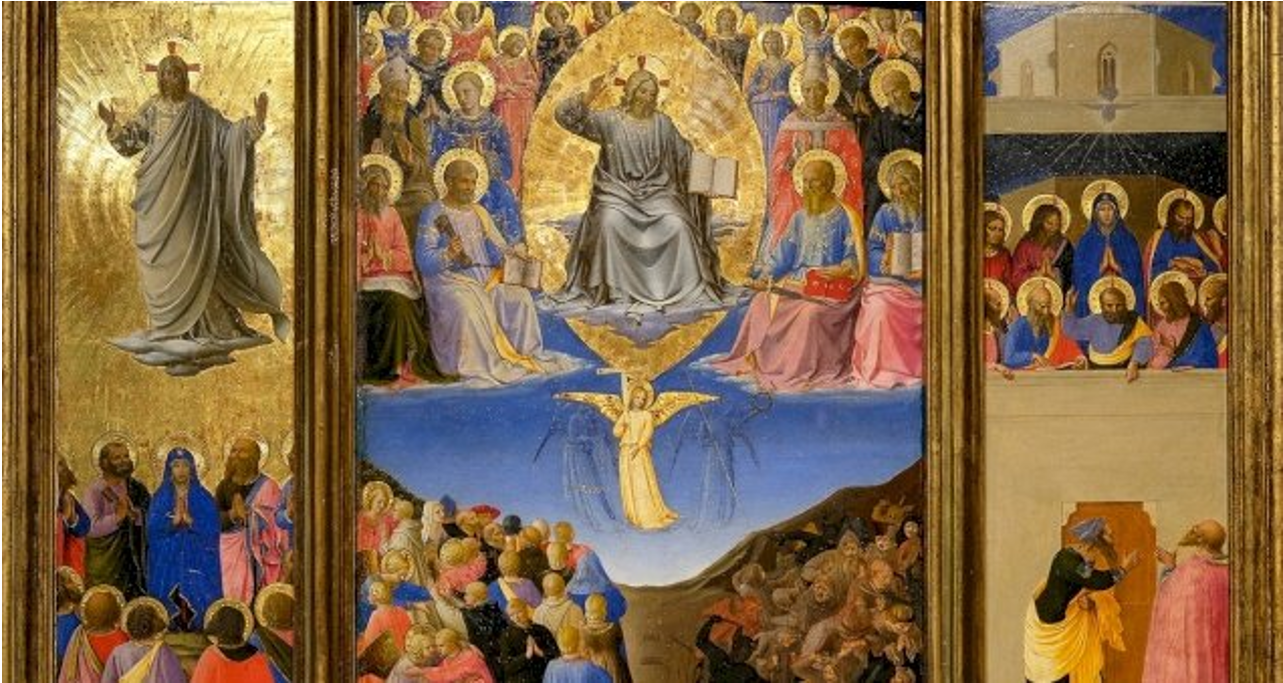Meditation of His Beatitude Patriarch Pierbattista Pizzaballa for Seventh Sunday of Easter, Year A
Below you can find the Meditation of His Beatitude Patriarch Pierbattista Pizzaballa, Latin Patriarch of Jerusalem, for the Seventh Sunday of Easter, Year A, on Sunday 21 May 2023.
Jn 17: 1-11
This final Sunday of Easter time bids us read a passage from the seventeenth chapter of the Gospel of John, where, after speaking with His disciples, after opening their hearts, Jesus now directly addresses the Father: it’s the long prayer of Jesus, called the “priestly” prayer.
It is to the Father that Jesus entrusts what is most dear to Him: first of all His mission among men, which is now going through the drama of death and failure, so that all may be fulfilled and Jesus can thus give eternal life to all.
Then, Jesus entrusts his disciples, his friends, those who have listened and received him, to the Father.
And He prays not only for them, but also for all others who, in the future, will believe in Him and will receive from Him the gift of new life.
The Father entrusted them all to Him – “they were yours and you gave them to me” (Jn 17: 6) – so that He would fill them with life, leading them to the full knowledge of the Face of God. And now that Jesus is about to accomplish this mission, He can restore all to the Father from whom everything comes: it falls to the Father, now, to watch over this work. Jesus’ prayer begins with a request that may seem strange to us: “Father, glorify your Son, that the Son may glorify you” (Jn 17:1), and this request will reappear several times within the passage.
It necessary to understand what Jesus is asking, whose glory He asks to be glorified: for it is not a glory as we understand it.
In the Gospels of Matthew (20:20-28) and Mark (10:35-45) we find an episode of Jesus’ life and His disciples that can help us understand.
John and James ask Jesus to sit one on the right and the other on the left in His kingdom: their request reflects an idea of very human, very worldly glory. An idea according to which glory would correspond to power, fame, success, and greatness. And Jesus already sees the opportunity to tell them that this is not true glory.
And repeatedly He will tell the disciples that they will get lost in asking themselves who is the greatest of them (cf. Lk 22:24), that true glory is that of one who serves, who takes the last place of those who give Life without holding anything for oneself.
Why? Because glory is nothing other than everything that manifests God to men, and the God of Jesus has chosen to manifest Himself in every humble gesture of love, for He Himself is love and humility.
He will therefore not manifest Himself in wealth, in power, in dominion, but in every lowering act, in every moment of gratuitousness.
Therefore, glory cannot be gained by ourselves, accumulating goods and triumphs. In the John’s Gospel Jesus is very hard with those who refuse to believe Him, with those who do not want to “go to Him to have life” (Jn 5: 40): “I do not receive glory from men… And how can you believe, when you receive glory from one another and you do not seek the glory that is from the one and only God? (5: 41, 44). Even they, like James and John, seek glory, and they too seek for earthly glory, “from each other”. But it is precisely this erroneous search that prevents believing in Him, that prevents receiving the true glory of God, which is manifested in the works of Christ, in the paradox whereby true glory consists in losing everything.
Then human glory divides and alienates from God, but also, among ourselves, divides and alienates us: in the episodes of James and John, the outcome of their request is the discord with the other disciples, scandalized…
This Meditation was originally published on the website of the Latin Patriarchate of Jerusalem. Please click here to read the full text.

